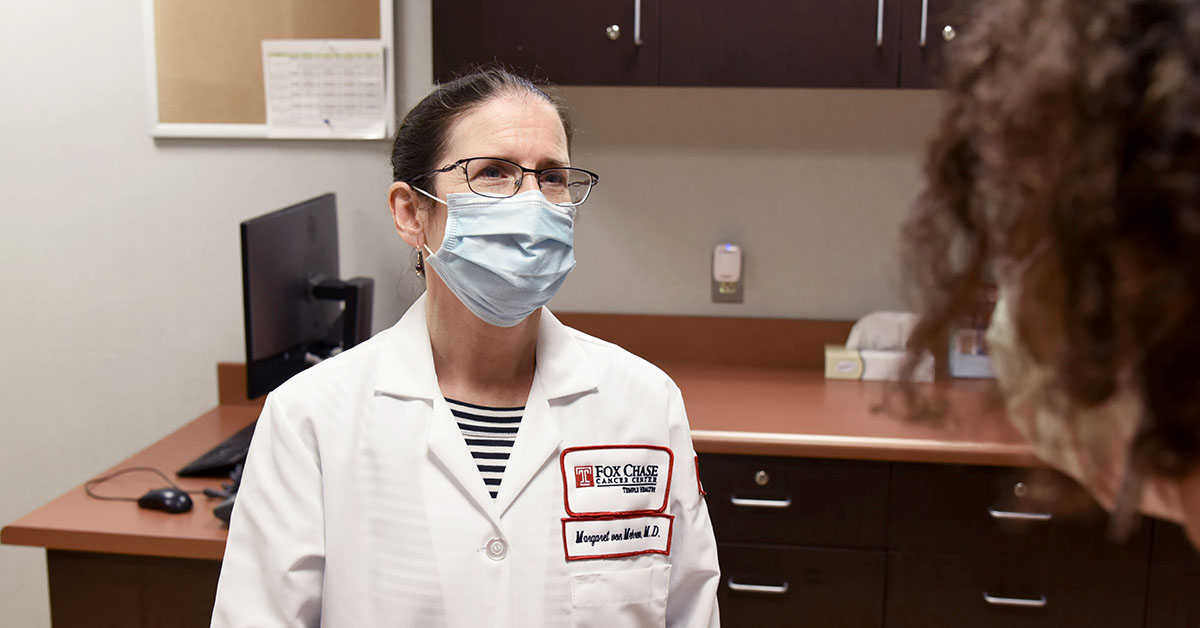
PHILADELPHIA (May 18, 2021)—Data from a new study by researchers at Fox Chase Cancer show that avapritinib, a platelet-derived growth factor receptor A (PDGFRA) inhibitor, has a “clinically meaningful benefit” for the treatment of gastrointestinal stromal tumors (GIST) with PDGFRA D842V mutations.
According to lead author Margaret von Mehren, MD, chief of the Division of Sarcoma Medical Oncology and professor in the Department of Hematology/Oncology at Fox Chase, PDGFRA mutations occur in about 10% to 15% of GISTs and D842V is the most common PDGFRA mutation.
“Until the Food and Drug Administration approval of avapritinib, we did not have a drug that was effective against this mutation,” von Mehren said. “If these patients had their disease return, we had no real therapeutic options apart from attempting surgery or enrolling in a clinical trial.”
She and her colleagues conducted the retrospective study in patients with unresectable or metastatic PDGFRA D842V mutations and compared their outcomes to those enrolled in the recently published NAVIGATOR trial. They compared the efficacy of avapritinib with that of several other previously approved tyrosine kinase inhibitors (TKIs) that have been shown to lack activity against this mutation.
The study included 56 patients treated with avapritinib in NAVIGATOR and 19 patients treated with other TKIs. The median overall survival for patients treated with avapritinib was not reached; patients treated with other TKIs had a median overall survival of 12.6 months. The overall survival rate at 6 and 48 months was 100% and 63% for avapritinib, and 56% and 17% for the other TKIs.
Adjusted and unadjusted progression-free survival rates were also longer for patients treated with avapritinib, the data showed.
“We are never going to be able to do a randomized trial in patients with this specific mutation because it occurs in such a small number of patients and because information suggests that these other drugs do not work,” von Mehren said. “This study was another way to provide context to the outcomes we are seeing with avapritinib.”
She said that in the most recently published NAVIGATOR results, the median progression-free survival was nearly three years and the median overall survival was not yet reached.
“Our data demonstrated that there is truly a clinically meaningful benefit to this drug compared with the benefit derived from other drugs, even among what is likely a group of patients with potentially more severe disease,” von Mehren said.
Even acknowledging some of the limitations inherent in a retrospective study, this analysis should help confirm that avapritinib provides meaningful, durable disease control for patients with PDGFRA D842V mutations.
The study, “Clinical Efficacy Comparison of Avapritinib With Other Tyrosine Kinase Inhibitors in Gastrointestinal Stromal Tumors with PDGFRA D842V Mutation: A Retrospective Analysis of Clinical Trial and Real-World Data,” was published in BMC Cancer.